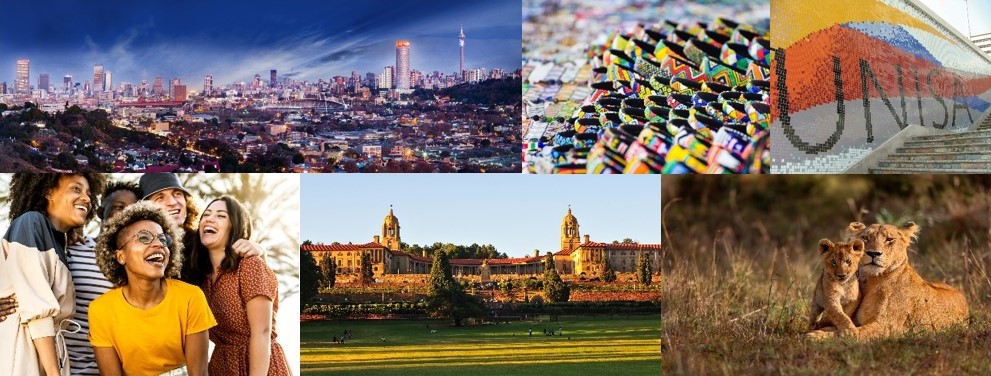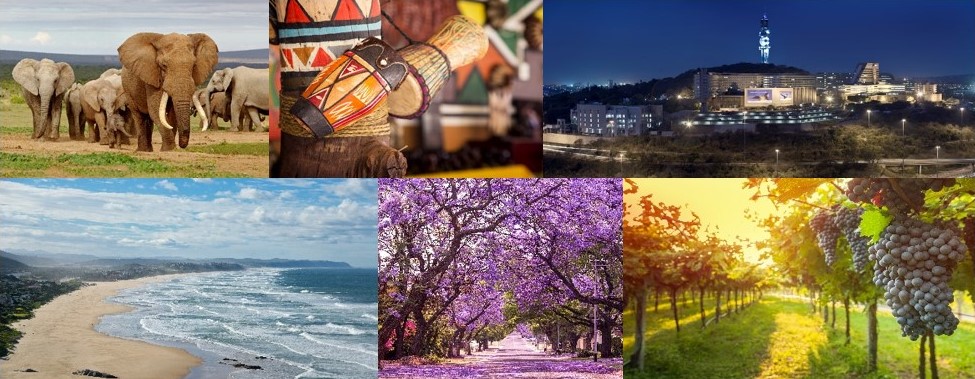- Professor George Siemens
- Dr Lilia Cheniti Belcadhi
- Professor Paul Tiyambe Zeleza
- Jennifer Glennie
- Professor Romeela Mohee
- Dr Christine I Ofulue
- Professor Uchenna Udeani
- Dr Roze Phillips
- Professor Margaret F. Omidire
- Professor Piera Biccard
- Dr Anitia Lubbe
- Dr Denzil Chetty
- Dr Jacqueline Batchelor
- Dr Sibongile Similane-Mnisi
- Mr Hugo van der Walt
- Ms Thobeka Msengana
Open Distance and eLearning Conference
About South Africa
 South Africa is home to one of the world’s Seven Wonders of Nature, Table Mountain, and to the Big Five of the African animal kingdom. It has more than 50 Blue Flag beaches along a coastline almost 2 800 kilometres long, basking in an average of 2 500 hours of sun a year.
South Africa is home to one of the world’s Seven Wonders of Nature, Table Mountain, and to the Big Five of the African animal kingdom. It has more than 50 Blue Flag beaches along a coastline almost 2 800 kilometres long, basking in an average of 2 500 hours of sun a year.
Classified as the third most biodiverse country in the world, South Africa has biomes ranging from forests to semi-desert, estuaries, wetlands and marine systems, and is home to over 95 000 known species of plants, animals and insects.
This is where the world’s biggest diamond was found, the Cullinan Diamond, discovered in 1905 in Pretoria – one of South Africa’s three capital cities.
Pretoria, located inland, in the Gauteng Province, is the executive capital of South Africa, meaning it is the seat of government.
Bloemfontein, also located in in inland province, the Free State, is the seat of the judiciary.
Cape Town, known as the Mother City, is home to the National Assembly (and Table Mountain) and is the legislative capital of South Africa.
Some of the world’s most respected leaders were born in South Africa. This was the birthplace of Albert Luthuli, Nelson Mandela and Archbishop Desmond Tutu, all Nobel Peace Prize laureates.
South Africa is also famous for its exuberant and original music and dancing. Who could forget the Ndlovu Youth Choir, which recently performed with Sir Elton John, and dazzled the world when they appeared on America’s Got Talent?
And of course, the country has produced scores of top-rated scientists, inventors, educators, writers, sportspeople and surgeons, including Dr Chris Barnard, who performed the world’s first heart transplant, and Professor Mulalo Doyoyo, the engineer who invented eco-friendly paint.
Higher education is a priority for South Africa, which has 26 public universities, the largest of which is the University of South Africa, which celebrates its 150th anniversary in 2023.
Welcome to South Africa!
